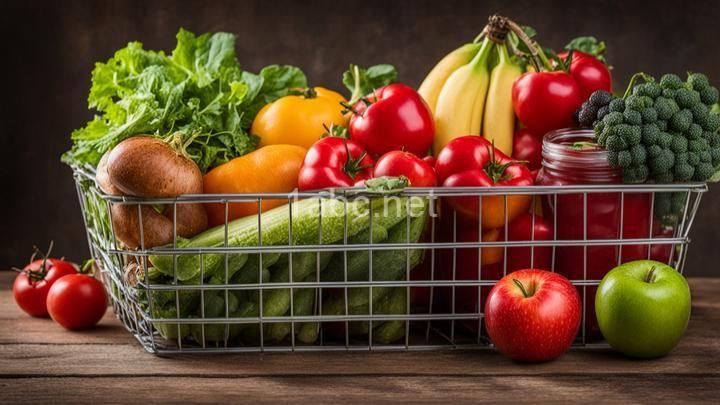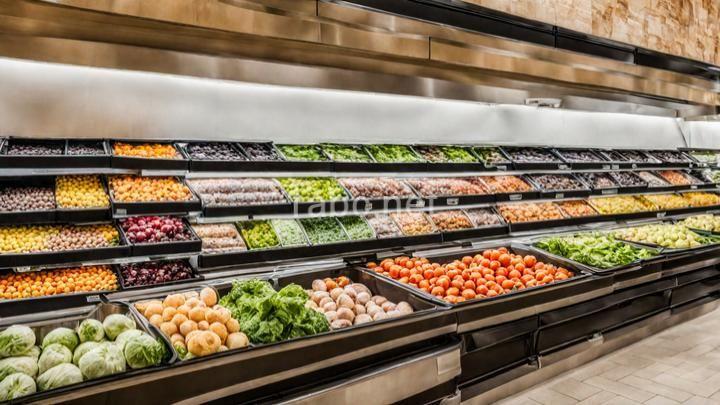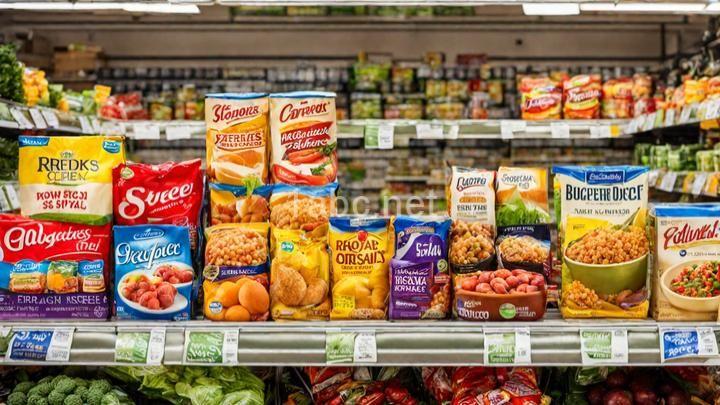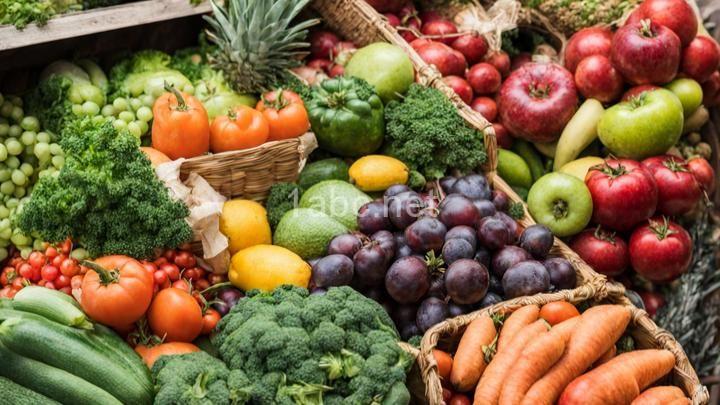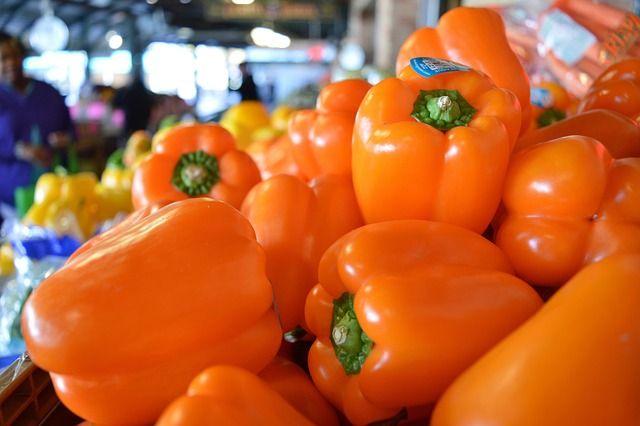Why Organic Doesn't Have to Break the Bank: Saving Strategies for Conscious Consumers
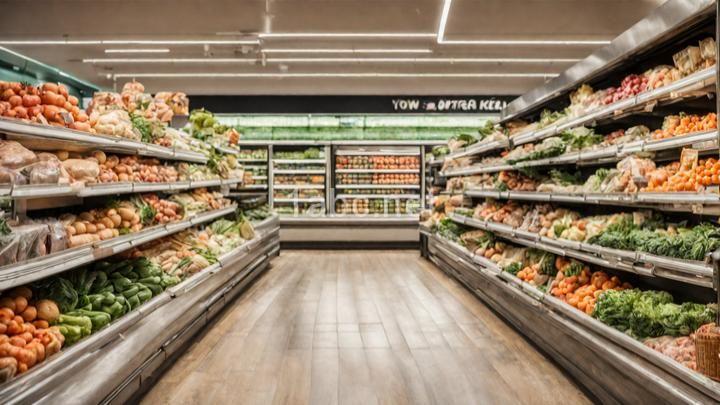
Introduction:
- Hook: Welcome to our blog post on how to save money while shopping for organic products!
- Background: As conscious consumers, we understand the importance of choosing organic options for a healthier lifestyle. However, the misconception that organic products are expensive often discourages people from making the switch. But fear not! In this post, we'll share some practical strategies to help you save money while still prioritizing organic choices.
When it comes to eating healthy and making sustainable choices, organic products are a popular option. They are free from harmful chemicals, pesticides, and genetically modified organisms, making them a great choice for those who are health-conscious. However, one common misconception about organic products is that they are too expensive for the average consumer. But worry not, my fellow conscious consumers! In this blog post, we will debunk this myth and provide you with some practical strategies to help you save money while still enjoying the benefits of organic living.
I. Plan Ahead and Budget Wisely:
To effectively save money while shopping for organic products, it's essential to plan ahead and budget wisely. Meal planning is a great way to ensure that you make the most of your organic ingredients without wasting anything. By planning your meals in advance, you can create a shopping list that includes affordable organic options. This way, you'll have a clear idea of what you need to buy and can avoid impulsive purchases.
Another useful tip is to use digital tools or apps to track your expenses and manage your budget effectively. There are numerous apps available that can help you keep track of your spending, set budgets, and even find deals on organic products. By being mindful of your budget, you can prioritize your organic purchases and make informed choices that align with your financial goals.
Buying in bulk is another smart strategy to save money on organic products. Many health food stores or online platforms offer discounts when you purchase larger quantities. By buying in bulk, you not only save money but also reduce packaging waste, which is a win-win situation for your wallet and the environment.
Community-supported agriculture (CSA) programs are also worth considering. These programs allow you to support local farmers by purchasing a share of their harvest. In return, you receive a weekly or monthly box of fresh, organic produce. CSA programs often provide a variety of fruits, vegetables, and sometimes even eggs, dairy, or meat. By joining a CSA, you not only save money but also directly support local farmers and enjoy the freshest organic produce available.
II. Shop Smartly:
When it comes to shopping for organic products, it pays to be a smart shopper. One of the first things you can do is compare prices at different stores or online platforms. Prices for organic products can vary greatly, so it's worth taking the time to compare prices and find the best deals. Additionally, many stores offer their own organic brands, which are often more affordable than well-known organic brands.
Keep an eye out for sales, discounts, and coupons specifically for organic products. Many stores have regular sales on organic items, so it's a good idea to check their weekly flyers or websites for any special offers. You can also sign up for newsletters from your favorite organic brands to receive exclusive discounts and updates on new products.
Local farmers' markets are a hidden treasure for affordable organic produce. Not only do farmers' markets offer a wide variety of fresh, locally grown organic fruits and vegetables, but they often have lower prices compared to grocery stores. By supporting local farmers, you not only get the best-tasting organic produce but also contribute to your community's economy.
If you frequently shop at a particular store, consider joining their loyalty program. Many stores offer loyalty programs that reward you with discounts, coupons, or even free products based on your purchases. By joining these programs, you can save money on your organic groceries and enjoy additional perks.
III. DIY Alternatives:
Making homemade alternatives for commonly purchased items is a fantastic way to save money while still prioritizing organic choices. Not only can you save money, but you also have full control over the ingredients used in these products.
For example, you can easily make your own cleaning products using simple, natural ingredients such as vinegar, baking soda, and essential oils. Homemade cleaning products are not only cost-effective but also free from harmful chemicals found in many commercial cleaning products.
Similarly, skincare essentials like face masks, scrubs, and even moisturizers can be made at home using organic ingredients such as honey, coconut oil, and oats. By making these products yourself, you can save money and have peace of mind knowing exactly what goes on your skin.
Pantry staples like nut butter, granola bars, and even bread can also be made at home. By making these items yourself, you can avoid the added preservatives and artificial ingredients found in many store-bought versions. Plus, it's a fun and rewarding way to experiment in the kitchen!
IV. Grow Your Own:
Growing your own herbs, vegetables, and fruits is not only a rewarding experience but also a great way to save money on organic produce. Even if you don't have a large backyard, you can still grow your own herbs and vegetables in pots or small raised beds.
Start by choosing plants that are easy to grow and suitable for your living situation. Some apartment-friendly options include herbs like basil, mint, and rosemary, as well as compact vegetables like cherry tomatoes, peppers, and lettuce. These plants can thrive in containers and provide you with fresh organic produce throughout the year.
By growing your own herbs and vegetables, you not only save money on grocery expenses but also have the satisfaction of knowing exactly where your food comes from. Plus, nothing beats the taste of freshly picked organic produce from your own garden!
V. Reduce Food Waste:
Food waste is not only a financial burden but also a significant environmental issue. By reducing food waste, you can save money and help protect the planet.
Meal planning is a crucial step in reducing food waste. By planning your meals in advance, you can ensure that you use up all your ingredients and avoid letting anything go to waste. Additionally, proper storage techniques, such as using airtight containers, can extend the shelf life of your organic produce and prevent it from spoiling prematurely.
If you find yourself with leftover ingredients or meals, get creative and find ways to use them. Leftover vegetables can be turned into a delicious soup or stir-fry, while stale bread can be transformed into homemade croutons or breadcrumbs. By using every last bit of food, you not only save money but also minimize your environmental impact.
Composting is another eco-friendly solution for food scraps. Instead of throwing away vegetable peels, coffee grounds, or eggshells, you can compost them to create nutrient-rich soil for your garden. Composting not only reduces waste but also allows you to give back to the earth and close the organic cycle.
Conclusion:
In conclusion, choosing organic doesn't have to break the bank. With strategic planning, conscious shopping habits, and a bit of creativity, you can save money while still prioritizing organic choices. By meal planning, shopping smartly, making homemade alternatives, growing your own, and reducing food waste, you can enjoy the benefits of organic living without compromising your budget.
We hope you found these saving strategies helpful and are inspired to try them out. We would love to hear about your experiences and any additional tips you may have in the comments section below. Remember, making conscious choices doesn't have to be expensive, and together, we can create a healthier and more sustainable future.
Thank you for taking the time to read this blog post. Stay tuned for more money-saving tips in our future posts. Happy saving and happy organic shopping!
FREQUENTLY ASKED QUESTIONS
What is the main focus of Why Organic Doesn't Have to Break the Bank: Saving Strategies for Conscious Consumers?
The main focus of "Why Organic Doesn't Have to Break the Bank: Saving Strategies for Conscious Consumers" is to provide practical and effective ways for individuals to incorporate organic products into their lifestyle without it being financially burdensome. This content aims to empower conscious consumers with money-saving strategies, helping them make sustainable choices without compromising their budget. By offering tips, advice, and insights, this article aims to debunk the common misconception that organic products are always expensive and unaffordable. It provides valuable information to help individuals navigate the world of organic shopping, prioritize their purchases, and find affordable alternatives. Whether it's understanding labels, shopping in-season, or exploring local options, this content offers actionable steps to make organic living accessible to everyone.
Why should I consider buying organic products?
There are several compelling reasons to consider buying organic products. Firstly, organic products are grown and produced without the use of synthetic pesticides, fertilizers, or GMOs (genetically modified organisms). This means that they are free from potentially harmful chemicals that can be found in conventionally grown products.By choosing organic, you are supporting sustainable agricultural practices that prioritize soil health, biodiversity, and water conservation. Organic farming methods promote the use of natural fertilizers and crop rotation, which help maintain the fertility of the soil and reduce the risk of soil erosion.
Additionally, organic products are often considered to be more nutritious. Studies have shown that organic fruits, vegetables, and grains can contain higher levels of certain nutrients, including vitamins, minerals, and antioxidants. They are also free from residues of synthetic chemicals, which may have negative health effects.
Moreover, buying organic products supports the well-being of animals. Organic farming practices prioritize animal welfare, providing animals with access to outdoor space and prohibiting the routine use of antibiotics and growth hormones.
It's important to note that while organic products may have certain advantages, they can be more expensive than conventionally grown alternatives. However, many people find the benefits of organic products, both for their own health and for the environment, to be worth the investment.
In summary, buying organic products allows you to make choices that align with your values and contribute to a healthier and more sustainable food system.
Is it really possible to save money while buying organic?
Yes, it is indeed possible to save money while buying organic products. While organic products may sometimes come with a higher price tag compared to conventional ones, there are several strategies you can implement to make your organic shopping more budget-friendly.Firstly, take advantage of sales and discounts. Many stores offer promotions on organic items, so keep an eye out for these deals. Additionally, consider joining loyalty programs or signing up for newsletters to receive notifications about special offers and coupons.
Another money-saving tip is to buy in bulk. Purchasing organic products in larger quantities can often result in significant savings. Look for bulk sections in grocery stores or consider joining a local co-op or buying club where you can access organic products at lower prices.
Growing your own organic produce is another fantastic way to save money. Even if you don't have a large garden, you can try container gardening or grow herbs and vegetables in small spaces. Not only will you have fresh, pesticide-free produce at your fingertips, but you'll also save money on grocery store purchases.
Consider exploring farmers markets and local farms in your area. These venues often offer organic produce at competitive prices as they eliminate the middleman. Plus, you'll be supporting local farmers and promoting sustainability.
Lastly, prioritize your purchases. Some fruits and vegetables have higher pesticide levels than others, so focus on buying organic versions of the "Dirty Dozen" - the produce with the highest pesticide residues. For items that are part of the "Clean Fifteen," which have lower pesticide levels, you can opt for conventional options to save money.
By combining these strategies, you can make conscious choices that align with your budget and still enjoy the benefits of organic products. Saving money while buying organic is definitely possible with a little planning and creativity.
What are some of the saving strategies discussed in the content?
In the content, we discussed several effective saving strategies that can help you reach your financial goals. Some of these strategies include:
-
Budgeting: Creating a budget is essential for managing your expenses and identifying areas where you can cut back or save more. By tracking your income and expenses, you can prioritize your spending and allocate money towards savings.
-
Automating Savings: Setting up automatic transfers from your checking account to a savings account ensures that a portion of your income goes towards savings every month. This eliminates the temptation to spend the money and makes saving a consistent habit.
-
Cutting Expenses: Analyzing your monthly expenses and identifying areas where you can reduce costs can significantly impact your savings. This may include minimizing discretionary spending, renegotiating bills, or finding ways to save on utilities and groceries.
-
Prioritizing Debt Repayment: If you have outstanding debts, it's important to prioritize paying them off. By focusing on high-interest debts first, you can save money on interest payments and free up more funds for saving in the long run.
-
Setting Savings Goals: Having specific savings goals in mind can provide motivation and direction. Whether it's saving for a down payment on a house, an emergency fund, or a vacation, setting targets helps you stay committed to saving and track your progress.
-
Avoiding Impulse Purchases: Learning to differentiate between wants and needs is crucial in saving money. Before making a purchase, take a moment to consider if it aligns with your goals and if it's something you truly need or just a passing desire.
-
Exploring Alternative Savings Options: Apart from traditional savings accounts, consider exploring other savings options such as certificates of deposit (CDs), investment accounts, or retirement plans. These alternatives may offer higher interest rates or potential growth on your savings.
Remember, everyone's financial situation is unique, so it's important to tailor these strategies to your specific circumstances. By implementing these saving strategies consistently, you'll be well on your way to achieving your financial goals.
